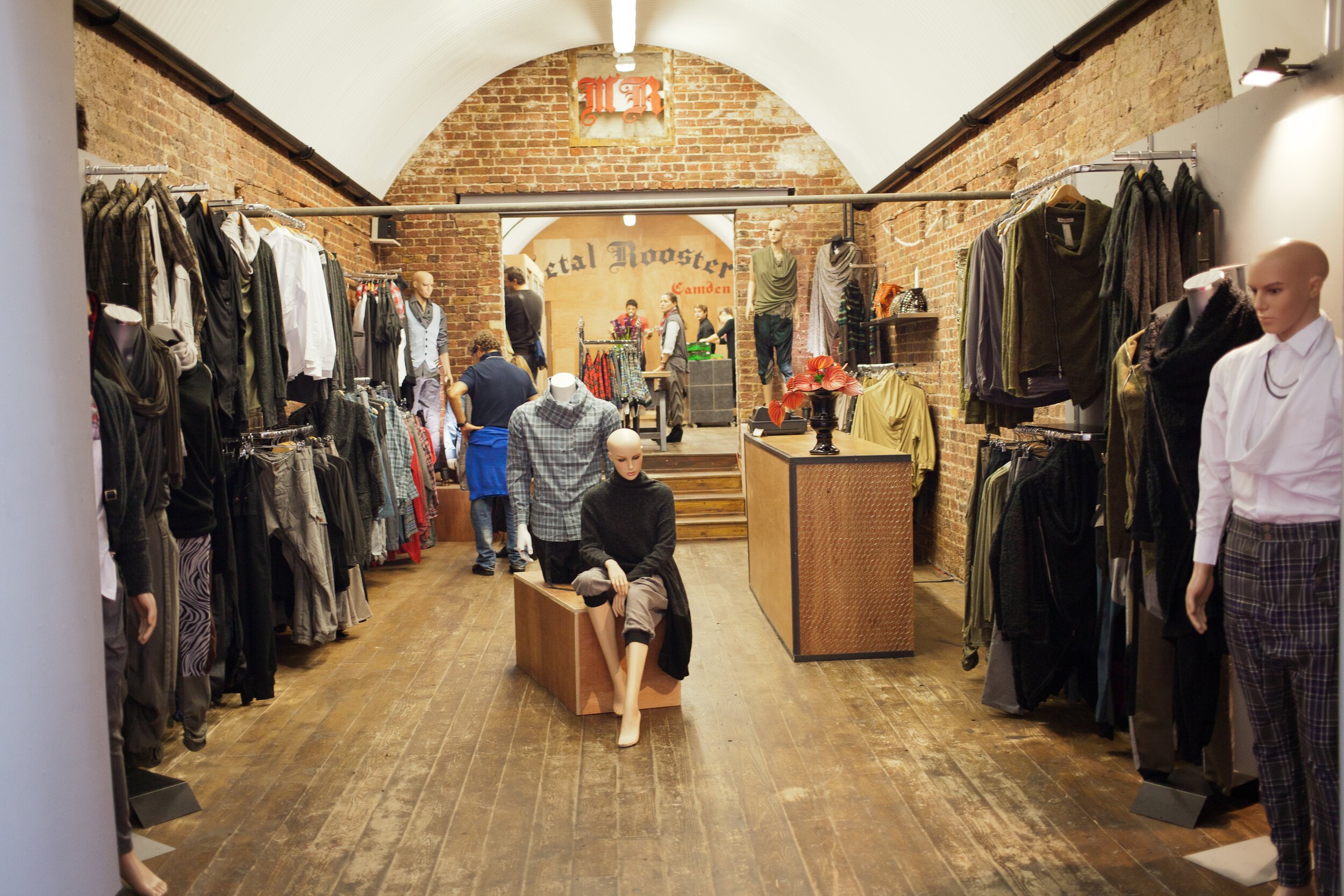Image source: Metal Rooster Ltd
Introduction to International Small Industry Day
International Small Industry Day is an annual event to recognise the contributions and achievements of small industries across various sectors, including fashion retail. This day serves as a reminder of the importance of small-scale businesses in driving economic growth, fostering innovation, and creating employment opportunities.
The Significance of International Small Industry Day in the Fashion Retail Sector
In the dynamic and ever-evolving fashion industry, small industries play a vital role in driving innovation and bringing fresh ideas to the market. International Small Industry Day holds immense significance in the fashion retail sector as it highlights the contributions of small-scale fashion businesses, which often face unique challenges in a highly competitive and globalised market.
Small fashion industries are the backbone of the fashion industry, acting as a breeding ground for creativity and fostering diversity in design. They provide a platform for emerging designers to showcase their talent and unique perspectives, adding vibrancy and freshness to the fashion landscape. International Small Industry Day aims to create awareness around the importance of supporting these small businesses, encouraging consumers to look beyond mainstream brands and explore the offerings of local and independent fashion designers and entrepreneurs.
The Impact of Small Industries on the Fashion Industry
Small industries have a significant impact on the fashion industry, influencing trends, and driving change. Through their innovative and experimental approaches, they challenge the status quo and push the boundaries of traditional fashion norms. Small fashion industries often serve as trendsetters, introducing new styles, materials, and techniques that later find their way into the collections of larger fashion houses.
Not only do small industries contribute to the aesthetic evolution of the fashion industry, but they also play a crucial role in addressing social and environmental issues. Many small-scale fashion businesses prioritise sustainability and ethical practices, focusing on fair trade, eco-friendly materials, and transparent supply chains. Their commitment to responsible fashion sets an example for the larger players in the industry, driving positive change towards a more sustainable future.
Fashion Industry Analysis and Trends
To understand the impact of small industries on the fashion retail sector, it is essential to analyse the current trends and dynamics of the industry. The fashion industry is known for its fast-paced nature, with trends constantly evolving and consumer preferences shifting rapidly. In recent years, there has been a growing demand for unique and personalised fashion items, driven by the rise of social media and the desire for individual expression.
Small industries are well-positioned to cater to this demand for uniqueness and personalisation. Their ability to create limited-edition collections and offer custom-made pieces sets them apart from mass-produced fashion brands. Moreover, small fashion businesses often have a closer connection with their customers, allowing them to understand and respond to their needs more effectively.
Success Stories of Small-Scale Fashion Industries
Image source: Metal Rooster Ltd
Despite the challenges they face, many small-scale fashion industries have achieved remarkable success and recognition on both local and global scales. These success stories serve as inspiration and proof of the transformative power of International Small Industry Day.
One such success story is that of a small fashion brand that started as a local boutique in a small town. Through a combination of unique designs, quality craftsmanship, and savvy marketing strategies, the brand gained a loyal following. As word spread about their exceptional products, they expanded their reach through online platforms and collaborations with influencers. Today, they have a global customer base and their designs are showcased in prestigious fashion events around the world.
Examples of Small-Scale Fashion Industries that have Gone Global
Several small-scale fashion industries have managed to overcome the barriers of limited resources and reach global audiences with their unique offerings. One notable example is a sustainable fashion label that started with a small team of designers committed to using only organic materials and ethical production methods. Through strategic partnerships with international retailers and digital marketing campaigns focused on their sustainability message, they gained recognition and attracted customers from around the world.
Another inspiring example is a small accessories brand that leveraged social media platforms to showcase their handmade products. By collaborating with influencers and engaging directly with their followers, they built a strong brand presence and established a loyal customer base. Today, their accessories are sold in high-end boutiques across different continents, demonstrating the potential for small fashion industries to go global.
How International Small Industry Day is Transforming Fashion Retail
International Small Industry Day serves as a catalyst for transforming the fashion retail landscape by elevating the visibility and impact of small-scale fashion industries. It encourages consumers to embrace diversity, support local businesses, and explore unique fashion offerings beyond mainstream brands. The day also provides an opportunity for small fashion businesses to network, collaborate, and learn from each other, fostering a sense of community and mutual support.
Through initiatives and events organised on International Small Industry Day, small fashion industries gain exposure and access to larger markets. Fashion shows, pop-up shops, and online campaigns create platforms for small businesses to showcase their products and connect with potential customers and buyers. These opportunities can open doors to collaborations with established retailers, leading to increased sales and brand recognition.
Strategies for Small Fashion Industries to Expand Globally
Expanding globally can be a challenging endeavour for small fashion industries, but with the right strategies, it is achievable. One effective approach is to focus on building a strong online presence and leveraging digital marketing channels to reach a wider audience. Investing in a well-designed website, engaging social media content, and search engine optimization can help small businesses attract customers from different parts of the world.
Collaborations and partnerships are another valuable strategy for small fashion industries looking to expand globally. By teaming up with established brands or retailers, small businesses can gain access to larger distribution networks and tap into existing customer bases. Collaborations also provide opportunities for knowledge sharing and learning from experienced industry players.
Collaborations and Partnerships in the Fashion Industry
Collaborations and partnerships are a common practice in the fashion industry, benefiting both small and large-scale businesses. For small fashion industries, collaborations offer a chance to gain exposure and credibility by associating with well-known brands or designers. These partnerships can lead to increased brand recognition and access to new markets, propelling small businesses towards global expansion.
Large fashion retailers also benefit from collaborations with small industries. By partnering with emerging designers or local artisans, they can bring fresh and unique products to their customers, differentiating themselves from competitors. Collaborations with small fashion industries also allow larger brands to tap into niche markets and cater to the growing demand for authentic and sustainable fashion.
Conclusion: The Future of Small Industries in Fashion Retail
International Small Industry Day serves as a reminder of the significant contributions and potential of small fashion industries in the global fashion retail sector. As the industry continues to evolve, small-scale businesses will play an increasingly important role in driving innovation, sustainability, and diversity.
To support small fashion industries, consumers can actively seek out and purchase from local and independent designers. By doing so, they can contribute to the growth of these businesses and encourage a more inclusive and sustainable fashion industry.
The future of small industries in fashion retail is promising, with advancements in technology, increased awareness of sustainability, and changing consumer preferences creating opportunities for growth. As International Small Industry Day continues to gain recognition and support, it will further empower small fashion industries to transform the fashion retail landscape.













